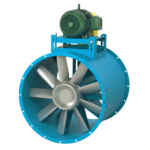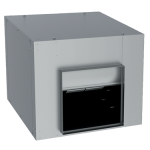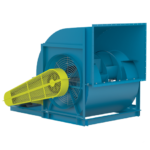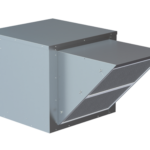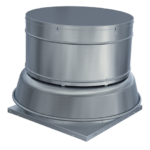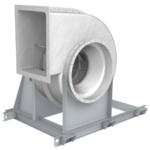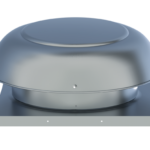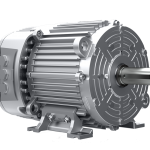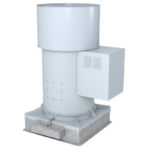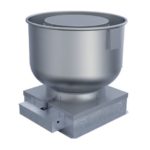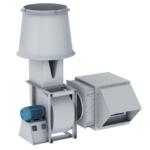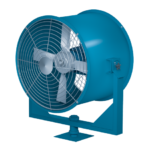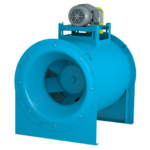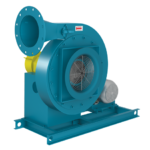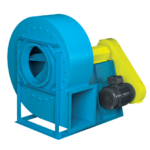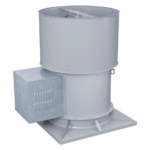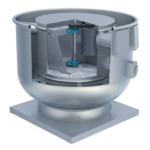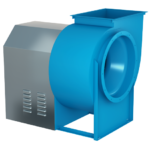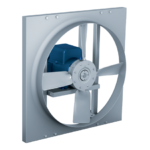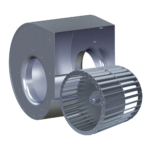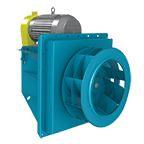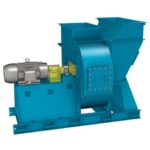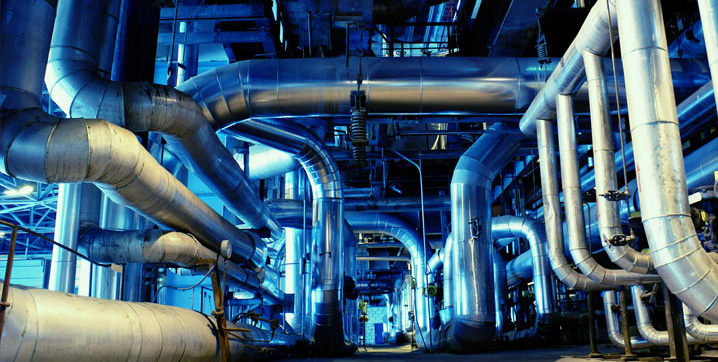
Explosion-Proof Processes
Industry areas such as chemical, pharmaceutical and various industrial processes have explosive environments that require the equipment to be specially constructed to minimize the risk of gas or dust ignition. Fans are one of the items of industrial equipment that have potential to ignite either gas or dust from either sparks caused by contact of the fan impeller and housing, or because of fan motors with high temperatures, inadequate gas/dust ingress protection, or inadequate construction for prevent spark or flame propagation in to the surrounding atmosphere.
The likelihood of sparks with the fan housing is minimized through use of special types of spark resistant construction, depending on the type of protection required.
AMCA “A” Spark Resistant Construction: Highest degree of spark resistance. Airstream parts are constructed out of non-ferrous materials. Typically, aluminum is the non-ferrous material used, but for certain applications, such as high temp, where aluminum cannot be used, Twin City Fan has the capability to use alternative materials including Monel®, Inconel® and Hastelloy®.
AMCA “B” Spark Resistant Construction: Less protection that AMCA “A” construction, AMCA “B” construction consists of a non-ferrous impeller and non-ferrous rubbing plate around the hole through which the shaft passes. As with AMCA “A” construction, aluminum in usually the non-ferrous material of choice but can be substituted with the alternative materials listed for AMCA “A” construction.
AMCA “C” Spark Resistant Construction: Lowest degree of spark resistance. Utilizes only a non-ferrous rubbing plate that is typically constructed of aluminum but can be constructed out of the aforementioned alternative materials when appropriate.
In addition to spark resistant construction, motor construction appropriate to the explosive environment must also be considered.
UL explosion standards classify explosive environments according to Class, Group and Division. The class indicates whether 1. Gases, vapors, liquids are present, 2. Dusts are present, 3. Fibers and flyings. The Group specifies what types of vapors, dusts, fibers, etc. are present. The Division specifies the frequency of the presence of the hazardous substances.
Class, Group and Division are specified by the client, and Twin City Fan works closely with our motor manufactures to determine the best motor that conforms to those specifications. Many of our fans are appropriate for explosion proof environments, but due to the interdependence of many factors, each situation must be considered uniquely.

